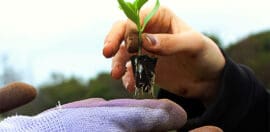World’s generosity revealed

22 October 2019 at 8:51 am
Australia has been named the fourth most generous country globally, but giving rates are rapidly dropping
Individual giving in some of the world’s richest countries is now lower than it was in the aftermath of the financial crisis, new research reveals.
The Charities Aid Foundation (CAF) World Giving Index examined a decade’s worth of survey results from 128 countries to determine the 10 most and least generous nations.
People were surveyed on whether they had helped a stranger, given money or volunteered for a good cause in the last month.
America ranked as the most generous country over the past decade, scoring 58 per cent overall.
Seven of the world’s wealthiest countries were also listed in the top 10, including New Zealand in third place and Australia in fourth place. The less affluent nations of Myanmar (second), Sri Lanka (ninth) and Indonesia (10th place) nabbed a spot in the top 10.
The report, now in its 10th year, said that the overall scores showed there was no real trend in terms of types of countries that were likely to appear high up on the index, with the top three countries coming from three different continents, varying levels of income levels and prevalent religions.
“There is no ‘secret ingredient’ that makes a country generous,” the report said.
Indonesia was the only country to improve its giving levels over the course of the index. Half the countries that have risen the most were from Asia.
- Worldwide, more than 2.5 billion people helped a stranger over the past decade.
- Globally, nearly 20 per cent of all adults volunteer, with Sri Lanka reporting the highest rate of volunteering in the world.
- New Zealand was the only country to feature in the top 10 for all three areas people were measured on.
The report said that for key countries with long histories of philanthropy and household charitable giving including the UK, America, Canada, Ireland and the Netherlands, levels of individual giving had dropped to a lower level than in the aftermath of the financial crisis.
America’s giving levels peaked in 2014, the report found, but then saw a steady decline in the next three reports, reaching as low as 56 per cent.
There was a very slight increase to 58 per cent in 2018, but
but that was still lower than the four year period between 2013 and 2016.
Australia ranked well for its share of financial donors, with the report finding over the decade that an average of 68 per cent of Australians donated to charity during the previous month.
But like the world’s other wealthy nations, a report released earlier in the year found the percentage of taxpayers who were giving to charity had dropped by 32 per cent in Australia, and that charities relied on big donors to prop them up.
For the first time the foundation revealed the lowest scoring countries on the index. China ranked the lowest scoring country overall, followed by Yemen, the State of Palestine and Bulgaria.
“Countries which score lowest on the index include those afflicted by war and severe economic problems, as well as countries where there is a young civil society, or where the relationship between the state and civil society is a fractious one,” the report said.
China had the lowest index score over the 10 years at 16 per cent, and was the only country to appear in the bottom 10 for all three measures people were surveyed on.
John Low, CEO of the CAF, said despite areas of concern he hoped the index would be used as a way to grow giving across the globe.
“There are areas of concern, but also key moments of hope in parts of the world that have overcome true hardship,” Low said.
“We know that there is no single solution to success. It is about hard work, shared values and knowing in ourselves the inherent benefit to all of us when we work to improve the lives of our friends and neighbours, and strangers who need our help.”
The report outlined a number of recommendations for government, international funders and civil society organisations to grow giving.
Key points for civil society organisations included ensuring good governance, being honest about impact to build trust, and meaningfully engaging local communities in decision making.
A full copy of the report can be found here.







